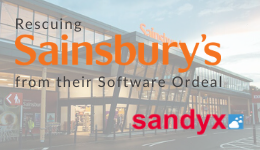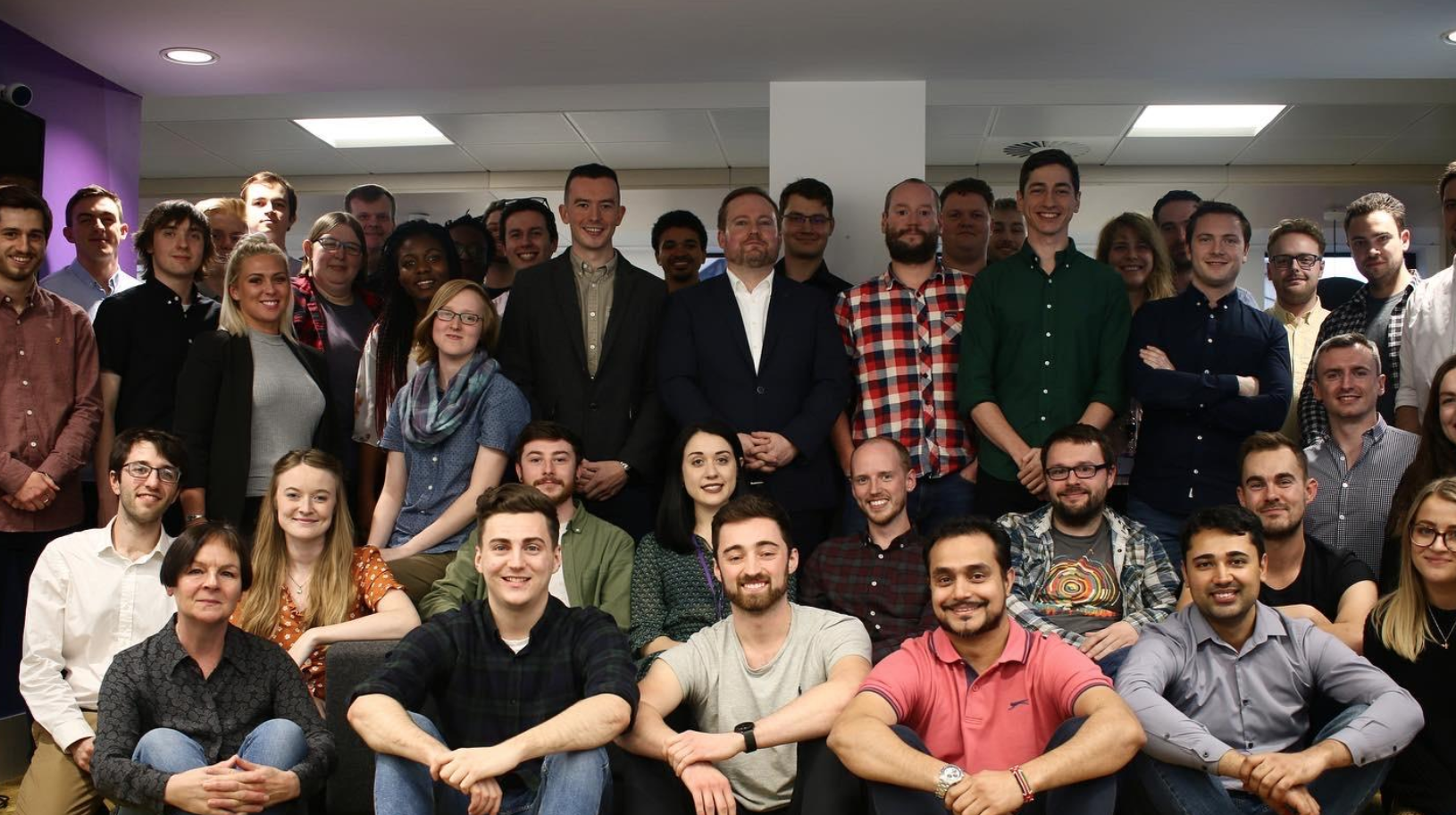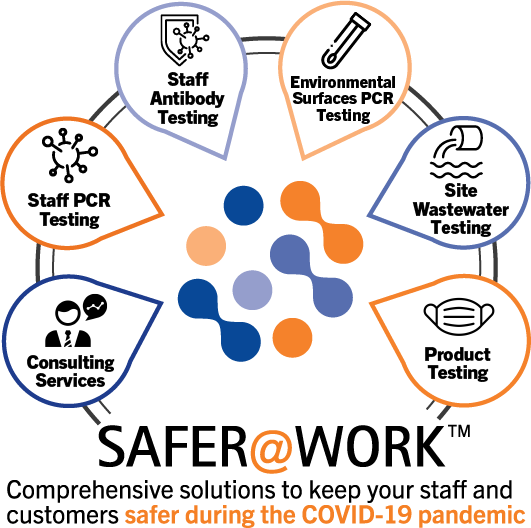
"Some Handy Hints for IT development companies looking to sell their products or services. "
(... he said, in a long winded title. Oh look, I'm an IT Sales and Marketing Consultant, and you can reach me on hello@davefrancisconsulting.com )
(I'll get to the squirrel later. Bear with me. )
Well. Now we've got past the long winded introduction.... statistically, if you're in the UK IT industry and work in Software Development, you're probably a member of a small company of less than 20 staff.
This means you're unlikely to have a dedicated Sales team.
Matter of fact, you're most likely to be the owner or founder of the company trying to find time in the evening to sell your products or services. In between reading Peppa Pig to your children and trying not to miss Masterchef.
An inescapable fact is that selling your product or service takes time, and it also takes expertise. Sales is, basically, a horrible brush with reality, and as well as taking up your Peppa Pig time, it also requires a rhino like thick skin. (Perhaps too many animal references there.)
The frustration of attempting to sell software may actually put you off even attempting it, or even writing software with a direct commercial application in the first place. You might end up instead writing software for someone who then dedicates the time and effort to sell it to their own customers themselves. "Less profit".
Believe me, neither I or anyone else can hand you the magic recipe for successful sales. but I can give you some handy hints and tips about what not to do. And here we go.
Don't contact the CTO
If you're a CTO, IT Director, IT Manager or anyone in IT.... don't try and contact other CTO's or IT contacts via Linkedin, email or any other medium to attempt to sell software.
Why ? Well. Remember how busy you are ? So are they.
Whilst you triumphantly click on "send", having written a convoluted and technical email to "the bloke who deals with software" in another company, bear in mind that you've just made his busy life even busier.
After you've clicked on "send", he'll click on "delete" or even "block sender" or "mark as spam" when the mail comes through.
Just as you do with all the "sales" mails you receive. And "requests for co-operation" and "SEO service" mails. You've probably even got mail filters set up.
So have they.
Let me use an analogy. It's like people sitting in traffic, complaining about the amount of traffic, when they themselves are part of the traffic.
Yes, it's "software". You may have contacted them because what they do is part of your understanding that "IT departments deal with software". But.....
So who do you contact ?
Who actually buys software ?
Let's stop thinking "technical" and start thinking "commercial".
Your software product presumably has a commercial use. Otherwise you may have been slightly mistaken in having written it in the first place.
(Actually, let me sidestep a second. If you've written something whose use is only going to be understood by someone technical, you have to either explain it in non technical terms or advertise it on a technical or developer forum where it'll get noticed.... not by sending out a mail.)
All software has some kind of use. He said, wearing his "obvious" hat. Companies will buy it from you as it either solves a problem they have or gives them the opportunity to use it to make money.
However
Now you run into an unexpected twist.
Whilst you may have identified who in a company to attempt to flog your software to, surprise ! - "it's not quite that simple".
Let's suppose that the Marketing Manager is all over the moon about your AI add on which will allow their team to easily identify partner organisations. He is positively salivating over it and would like to send you a payment straight away.
Purchasing anything in a company doesn't work like that. The Marketing Manager will have to clear a purchase with the Chief Finance Officer and the Chief Technology officer, most likely. The CFO will look down his beaky nose at the appropriate spreadsheets, contact the Finance Controller, agree on quarterly spend, then the CTO will have to be involved who will invariably look into the clockwork of your system and see if it can be connected by Zapier to the office kettle / cat / CRM system / whatever.
Then they'll all get around in a meeting - eventually - and find new things to discuss, like user acceptance, an appropriate training regimen for new users and probably something about Peppa Pig or Masterchef as well.
At the same time, Other Priorities are bubbling to the surface, like the IoT toaster for the office kitchen.
Now. Here comes the squirrel analogy.
Think like a squirrel
Unless you live near a nuclear power plant, you probably didn't open the curtains this morning to see your garden knee deep in dead squirrels.
Why ?
Because squirrels are very successful in what they do. Well, granted, they have no road sense. I never worked out the "Tufty Squirrel club" road safety campaign, by the way.
Apart from having a notable lack of expertise in crossing busy roads, squirrels have it all worked out. They use their time and available resources extremely well - they get the easiest food they can, they don't waste time trying to get to impossible to reach food sources, they're adaptable, resourceful and what they can't immediately eat, they bury, remember where they've buried it, and come back in times of need.
Translated
- Go for the easy wins
- Don't waste your time on impossible goals
- Try different approaches and think creatively
- Bury your nuts for winter.
Sorry about the last point, I painted myself into a corner.
Sales, as I mentioned, is a horrible exercise in reality. It's great to be enthusiastic. It's bad to be over enthusiastic.
It's also bad to think "I've not got through to someone in fifteen attempts, I'll try again and sixteen maaaay be the lucky number, after all, "persistence". "
You'll most likely persistently fail. Bury that particular nut for later and go off looking for easier ones to eat. If you're not short of data, try someone else.
Getting "90% of the way there" is meaningless. This is a binary exercise. You either get 100% of the way there or ching, no sale. The fact is that some companies or contacts can't be pushed that final 10%, or will even engage in "what if ? " exercises where they'll push you right up to price negotiation stage, to see how much potential discount they could get from you - or someone like you - in the future.
It's frustrating. It's horrible. It's demoralising. Now you know why Sales people get paid such a lot of money.
And now.....
How do you approach potential customers ?
The more astute amongst you will perhaps realise that you are, in fact, reading am advert for my brilliant, insightful yet tantalisingly inexpensive services. (hello@davefrancisconsulting.com by the way.) You've probably been lulled into thinking that this is an amusing piece written for your edification.
And I've not even mentioned "leverage your elevator pitch with a Call To Action" yet.
Nope. I'm selling myself to you. You've not realised it yet.
Point One - language. I'm speaking to you in Plain English. This is, in fact, how most people talk to each other. I read some hilarious piece on Linkedin about "How to use C level language" once. Written by some kind of self appointed Sales Guru, it worked on the supposition that "C level contacts all spoke a special language" and that you could utilise that fact to "leverage" something or other to your Sales advantage.
I got the impression that, when the office was empty, all the bosses took off their human masks to reveal reptilian heads and all made hissing noises. Well. Who can tell ? Seems a bit unlikely.
Speak normally. Everyone, for God Knows What Reason, gets endless identical mails where someone supposes it's clever or "professional" to speak gibberish. One sales consultant where I used to work used such florid and artificial English that he earned himself the nickname, "The Riddler". He was so "professional" that no one in the office, or presumably outside it, could understand what he was saying.
Point Two- brevity. We all have busy lives. Keep it short. Keep it to the point. Don't go off on tangents about squirrels, ideally.
A great tool to force the conditions of brevity on you is.... Linkedin connection requests. That 300 character limit will ensure that your initial contact is brief and to the point. "Could we send you some information..... " etc etc.
How do you find the relevant contacts ? A great tool is Apollo. Apollo is a contact database - like Zoom Info but far cheaper - which will allow you to find potentially interested contacts for your Sales campaign. It connects to Linkedin, and Hubspot, a free CRM tool. It's not expensive and I do encourage you to have a look at it.
Point Three - don't "sell".
(Oh God, he's gone all "guru" now, it was bad enough with the animal references...)
Now. Here's a difficult concept. "People don't like being "sold" to." Note the quotes.
When novice salemen get going, a weird thing happens. They assume the personality of a 1950's US vacuum cleaner salesman and try to be pushy, to close deals, to take command of a conversation and to "sell".
This probably worked great for vacuum cleaner sales in the 1950's. Except you're not selling vacuum cleaners to bored housewives. You're selling expensive software solutions to knowledgeable people with restrictions on what they can buy and when. No one ever spent £40,000 on a software solution and then went back and told the boss.
What you are doing is having a conversation with a potentially interested person about how your software can potentially provide a solution to a problem they might have.
If they don't have a problem or you don't have a solution, move on and find someone who does have a problem. It's that simple.
Actually, you may be a fit and they don't realise it. Which brings us to the final point....
"There is no percentage in educating a fool"
To quote Mark Twain. Possibly.
There is another Great Sales Myth which comes under the term of "objection handling". Client says "T'aint so." They're wrong. You use Words of Wise Sales Wisdom to correct their erroneous thinking. Ching, sale.
So theory has it.
This presupposes you're dealing with normal, rational, non egotistical human beings who are prepared to alter their point of view when confronted with Salient Facts. I don't know if you've seen the internet recently, but this rarely happens. You can do so much to gently persuade people that in fact, you might be correct and they may be "less so", but beyond a certain point, you have to ask yourself, "would it be better if I left them to their delusions and moved on to someone perhaps a bit more receptive ?"
Again, the All Purpose Squirrel Analogy.
Conclusions - and contact details
Well, as ever, I hope you found this useful - and amusing. (After 20 years in IT Sales, you tend to develop a sense of humour through sheer necessity.)
In conclusion: it's not easy for small IT businesses to embark on selling their own software. Hopefully some of the tips above give you if not a solution, then a better overview of what's involved.
And here's the plug: if you want professional help and advice on how to set about selling your product or services to the world, try hello@davefrancisconsulting.com .
If you want to know anything more about squirrels, here's the link. ;-)








